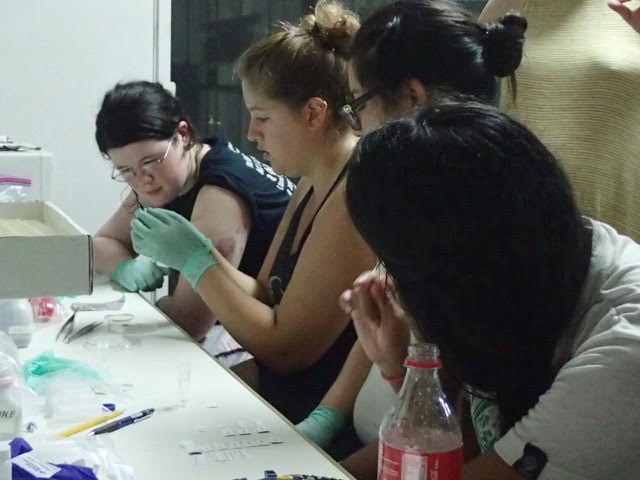
Hutchinson Distinguished Biology professor, Dr. Patricia Dorn, and her collaborators from Guatemala, Vermont and Brazil have recently published their discovery of a new species of kissing bug, which they found in a cave in Belize. This is important because these kissing bugs can carry the deadly Chagas parasite, which they can transmit to humans. Indeed, Dorn and co-workers have already found the Chagas parasite in this new species. Dorn named the new species Triatoma mopan in honor of the indigenous Mopan Maya historically and presently in this region. Although it looks similar to the main kissing bug species in Central America, their previous work, going back more than ten years, had shown that the genetic make-up of this cave species is quite different. With the help of the Brazilian collaborators, they have formally described it as a new species and found many physical characteristics that distinguish it from the main Central American kissing bug species. This work was just published in the ZooKeys Journal. The journal article may be found here: doi: 10.3897/zookeys.775.22553 (search author Dorn)

Former Loyola students Meghan Gallaspy (L) and Brooke Williams (second from left) processing bugs in Belize. Co-author Raquel Lima-Cordon (3rd from left).
